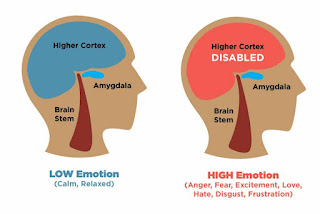"ANU" for All
Anomia is a term to describe a difficult situation to find the correct or relevant word. Dealing with the situation, the speakers tend to express it by describing the object or talking about their purposes. In Indonesian context, most of the speakers replace it by using 'ANU' to refer to various context. This is what I called a universal language. Interestingly, this is so ubiquitous especially in Indonesian context.
ANU is not ANU for Australian National University, or Anti-Narcotic Units. This is unclear where this word comes from. To my mind, that is a clipping processing in Bahasa Indonesia word formation. This seems exaggerated but sounds logical. The idea of clipping refers to the shortening words, or make a word become shorter. This is to create a new word by shortening the original words. For example, Perpustakaan (Library) become Perpus. Gramedia becomes Gramed. Some syllables, especially the last ones, are cut down. In English, we can see Doc for Document, lab for laboratory, and Prof for Professor.
The expression of ANU is typical in daily conversation as a form of response to the given stimulus. When A asked B "Siapa cowok yang duduk di samping di kelas Psycholinguistics barusan? / Who is the man sitting next to you in Psycholinguistics class recently?" and B responded by saying "Anu". It happens while B is still trying to find the right answer to that question. Another question would be likely "Why were you late yesterday? / Kenapa kog terlambat kemaren?". Any typical questions which normally require more thoughts, or the speaker cannot answer the question precisely, they said "Anu".
To some extent, the speakers employed it for taboo words. One of the reasons to do so is to stay away from impoliteness. In English context for instance, people use 'sugar' instead of 'sheet'. Not to use both of them, then the speakers alternate their expression. Not to be rude, this expression is also useful.
The above illustration highlights that how important it is to have a precise answer to the given question or find correct words to what we mean. However, how the brain works is not always in line with our utterance. Basically, the speakers have already had a clear picture of the topic (name of a person, an event, things, or experiences). But that word does not come to a surface. To make a lull (while the speakers are processing the correct words), the answer would be likely "Anu". Sometime, the speakers use the definition of the meant words or illustrate their functions. In terms of the person for instance, if the name of that person hasn't come up yet, the speakers will describe him/her physically. This does not matter either they finally come up with the correct words or not.


Comments
Post a Comment